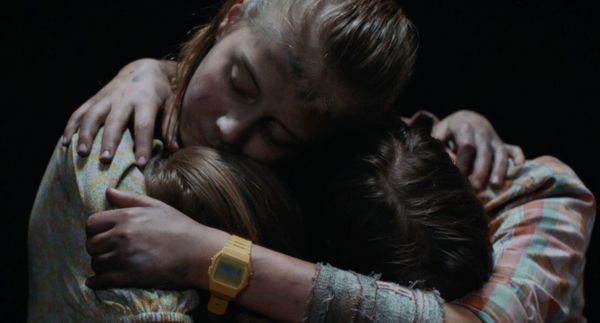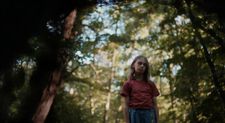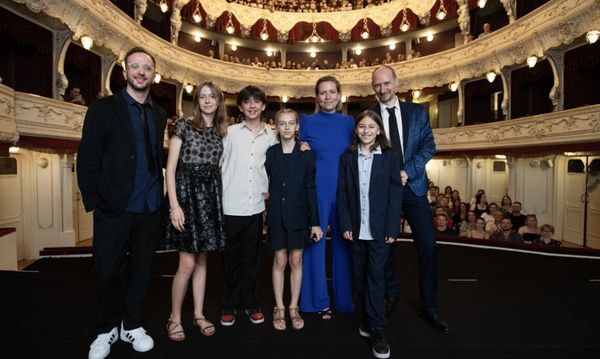 |
| Lost Children. Michèle Jacob on the shoot: 'The team were camping; it was like a big holiday camp' Photo: Courtesy of KVIFF |
Belgian filmmaker Michèle Jacob, who read his tales at about the age of 9, found his writings “too sad and disturbing and they broke my heart. It was the first time I had cried in front of art”.
She said: “I was given some the books as a gift from my mother. I think she thought it was great storytelling with children able to fly and all those other tricks. She thought Peter Pan was a great story. I didn’t think it was funny at all and for years I was unable to talk about. It was too hard. Now, though, I am OK with it, mainly because I have had a good shrink and I am fine with my inner child.”
She has poured many of those feelings into her first feature, Lost Children which received its world premiere recently at the Karlovy Vary International Film Festival.
In the film she tells of Audrey and her siblings who wake up in an isolated house in the woods and realise that their father has disappeared. They try to return home, but get lost in the woods. Audrey realises that she must fight the beast that haunts her in order to save her siblings from going mad.
 |
| Director Michèle Jacob: 'The leap to features felt like a natural progression' Photo: Film Servis Karlovy Vary |
Unlike their mother the children took the fantastical world in their stride. She explained: “We talked a lot about the themes. I told them that the difference between them and me was that I was older. I have experience, but that is all. We have to be a team and to live the life every day, the drama as well as the joy.
“I am really precise so they did not influence the way the film unfolded. I am really connected with children. So I wrote the script because I know children and I am never going to write something they are not going to be able to say. There was no improvisation.”
The shoot was an adventure in itself. The crew and the actors all slept in a castle because they had a limited budget. “The team were camping; it was like a big holiday camp,” she said.
Jacob’s route into filmmaking was by the way of short films. “The leap to features felt like a natural progression. Before I made my first short I attended film school in Brussels where they told me they felt I was not suitable for a career in cinema and that I would be better to try other stuff.”
 |
| Lost children - woodland Photo: Courtesy of KVIFF |
The first film that had an effect on the youthful Jacob was Terry Gilliam’s The Adventures of Baron Munchausen, a 1988 adventure fantasy starring John Neville, Sarah Polley, Eric Idle, Jonathan Pryce, Oliver Reed, Robin Williams and Uma Thurman. It was based on the tall tales about the 18th-century German nobleman Baron Munchausen and his wartime exploits against the Ottoman Empire.
“It was just amazing - and then of course I got to know and love the work of Jean-Pierre Jeunet (Delicatessen, The City Of Lost Children) and British films such as Billy Elliot and Kes.
She believes that Belgian cinema has a particular edgy sense of style. “I think that has to do with the fact that we do not ever seem to have enough money and we are always up against it most of the time. Not having a big budget means we have a certain kind of freedom, though, which can take its toll on your mental and physical health.”






















